 The 2018 Edelman Trust Barometer has just been released and reveals a world of seemingly stagnant distrust.
The 2018 Edelman Trust Barometer has just been released and reveals a world of seemingly stagnant distrust.
As we begin 2018, we find the world in a new phase in the loss of trust: the unwillingness to believe information, even from those closest to us.
Warning – this is not a cheery read!
Of note for professional communicators is the increased trust in CEOs and decreased trust in peer-to-peer communication.
Yikes. That’s huge! Peer-to-peer communication has been the most trusted form of communication in recent years.
The Trust Barometer is a global study which is worth familiarising yourself with, I write about it every year as it’s packed with valuable information. The online survey gathers evidence from 28 countries and has 18 years of data and 33,000 respondents.
This year brings a change in the ecosystem of trust, which had become increasingly premised on peer-to-peer discussion. For the last five years we have lauded peer-to-peer as the must credible form of communication as it’s more trusted. Today’s report challenges that thinking.
What’s the reality in your company? Have you noticed a decline, or is peer-to-peer communication the most credible and trusted?
The credibility of “a person like yourself” declined substantially, and peers are no longer the most-believed source of information.
Edelman say: “The loss of confidence in information channels and sources is the fourth wave of the trust tsunami. The moorings of institutions have already been dangerously undermined by the three previous waves: fear of job loss due to globalisation and automation; the Great Recession, which created a crisis of confidence in traditional authority figures and institutions while undermining the middle class; and the effects of massive global migration.
“Now, in this fourth wave, we have a world without common facts and objective truth, weakening trust even as the global economy recovers.”
Information bubbles
The study found people have retreated into self-curated information bubbles, where they read only that with which they agree, as if selecting their playlist for music.
Have you noticed this? What impact does it have on how your company communicates?
The Barometer suggests social media companies have lost the trust of the public, with 70 percent agreeing they “do not do enough” to prevent illegal or unethical behaviours on their platforms. The same proportion agrees these companies do not do enough to prevent the sharing of extremist content, and 69 percent agree they don’t do enough to combat cyberbullying.
More than one-third of those surveyed believe social media is not good for society, with 64 percent agreeing they’re not sufficiently regulated and 63 percent believing they lack transparency.

Renewed confidence
There is renewed confidence in experts, notably technical experts and academics (63 percent and 61 percent, respectively), as well as a fast recovering belief in CEOs (up from 37 percent to 44 percent), rewarded for speaking out on issues.
People’s trust in business, government, NGOs and media remained largely unchanged from 2017 — 20 of 28 countries surveyed now lie in “distruster territory”, up one from last year. Yet dramatic shifts are taking place at the country level and within the institution of media.

Agents of change
Business is now expected to be an agent of change. Edelman states: “There are new expectations of corporate leaders. Nearly 7 in 10 respondents say that building trust is the No. 1 job for CEOs, ahead of high-quality products and services.”
Richard Edelman, President and CEO of Edelman, says: “The employer is the new safe house in global governance, with 72 percent of respondents saying that they trust their employer to do what is right. By nearly a two-to-one margin, a company is trusted to take specific actions that both increase profits and improve economic and social conditions.”

“Nearly two-thirds say they want CEOs to take the lead on policy change instead of waiting for government, which now ranks significantly below business in trust in most markets. This is the time for business to address the wage stagnation of the working class over the past two decades while acknowledging the need to retrain employees who are about to be replaced by automation.
There is a desperate search for the terra firm of stability and truth.
“The fourth wave of the trust tsunami, the rise of disinformation, is perhaps the most insidious because it undermines the very essence of rational discourse and decision-making. Silence is now deeply dangerous — a tax on truth.”
Wow. So much to unpick in there. How can we provide certainty for our organisations? What’s our stability and truth internally?
I’m interested in the “trust tsunami” – particularly the rise of disinformation. How can we address this? How are you tackling it in your organisation?
As ever, you’re welcome to comment below or Tweet me @AllthingsIC.
In search of truth
Globally, nearly seven in 10 respondents among the general population worry about fake news or false information being used as a weapon, and 59 percent say that it is getting harder to tell if a piece of news was produced by a respected media organisation. What’s your view?
Further reading on the All Things IC blog: Why fake news matters and what you can do.
In this environment, media has become the least-trusted institution for the first time in Trust Barometer history — yet, at the same time, the credibility of journalists rose substantially. A number of factors are driving this paradox.
Confusion about the credibility of news is connected to the broad, wide definition of media that Trust Barometer respondents now hold. Some people consider platforms to be part of “the media” — including social media (48 percent) and search engines (25 percent) — alongside journalism (89 percent), which includes publishers and news organisations.
Trust in journalism
This year, trust in journalism jumped five points while trust in platforms dipped two points. The credibility of “a person like yourself” — often a source of news and information on social media — dipped to an all-time low in the study’s history.
Most likely, the falloff of trust in social and search, and of the credibility of peer communication, are contributing to the overall decline of trust in media.
At the same time, voices of expertise are now regaining credibility. Journalists have risen 12 points, and CEOs recorded a seven-percentage point gain, since 2017. Technical experts, financial industry analysts, and successful entrepreneurs now register credibility levels of 50 percent or higher.
You can read the full report online and below:
Other key findings
- Technology (75 percent) remains the most trusted industry sector followed by Education (70 percent), professional services (68 percent) and transportation (67 percent). Financial services (54 percent) was once again the least trusted sector along with consumer packaged goods (60 percent) and automotive (62 percent).
- Companies headquartered in Canada (68 percent), Switzerland (66 percent), Sweden (65 percent) and Australia (63 percent) are most trusted. The least trusted country brands are Mexico (32 percent), India (32 percent), Brazil (34 percent) and China (36 percent). Trust in brand U.S. (50 percent) dropped five points, the biggest decline of the countries surveyed.
- Nearly seven in 10 respondents worry about fake news and false information being used as a weapon.
- Exactly half of those surveyed indicate that they interact with mainstream media less than once a week, while 25 percent said they read no media at all because it is too upsetting. And the majority of respondents believe that news organisations are overly focused on attracting large audiences (66 percent), breaking news (65 percent) and politics (59 percent).
That was such a depressing read. Sorry! It’s worth being aware of this information and then analysing your own communication and levels of trust in your organisation, using this study as context and a benchmark.
As ever, do let me know your thoughts below or Tweet me @AllthingsIC.
Come and learn about communication with All Things IC
I’d love you to join me at my latest training course to learn more about internal communication. Search the Masterclasses website and book your place.
My day-long courses have been designed to provide a safe place where you can learn, ask questions and boost your confidence. See my Masterclasses page to find out more and book your place.
Masterclasses cost £599 +VAT per person and if you’re a CIPR or IoIC member or nonprofit organisation, you can save 20%. See my Masterclasses website for more info. I’d love you to join me.
Here’s what’s on…
Thank you for stopping by,
Rachel
Post author: Rachel Miller
First published on the All Things IC blog 22 January 2018.













“The fourth wave of the trust tsunami, the rise of disinformation, is perhaps the most insidious because it undermines the very essence of rational discourse and decision-making. Silence is now deeply dangerous — a tax on truth.”
Great summary Rachel, as ever. This will have implications for the trustworthiness (or otherwise) of information circulated internally within large organisations. User generated content can be partisan as well as enlightening. The question is whether this malaise will infect the adoption of internal platforms – in particular Workplace by Facebook.
Thanks for your comment Marc, I’m intrigued to see what happens next. I see organisations deriving great value from peer-to-peer communication. I guess the proof will be whether it’s because it’s an enclosed bubble of people saying similar things, or if it’s powerful because it challenges thinking and fosters collaboration. I think tech has a role to play, but it’s the permission we give our employees to challenge their own thinking.